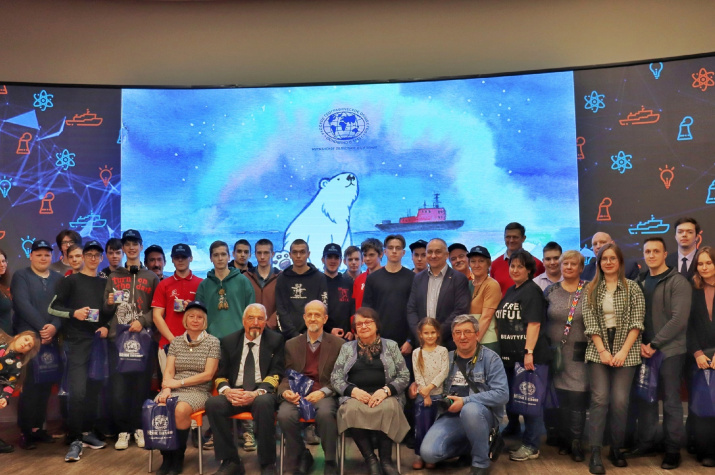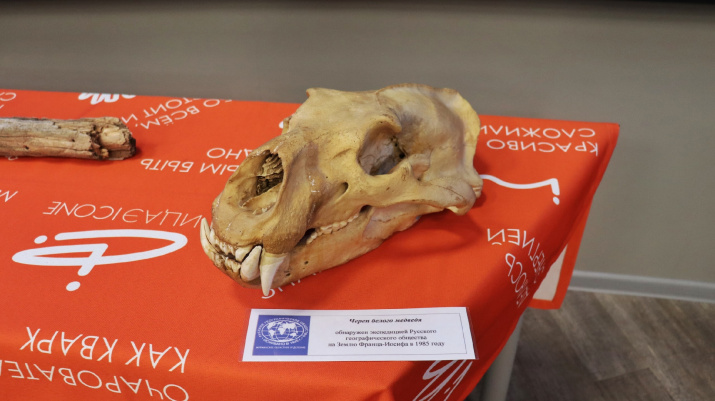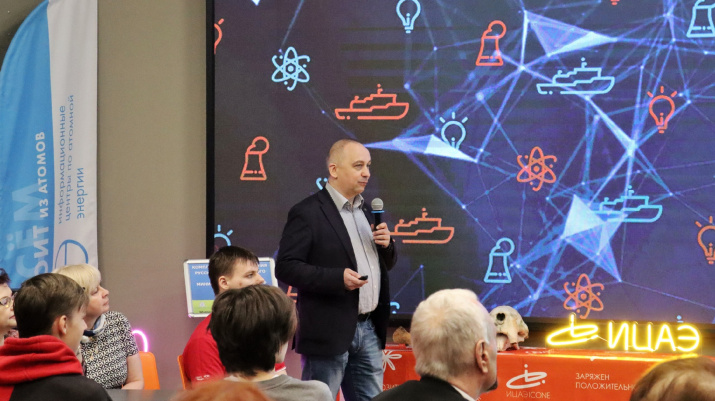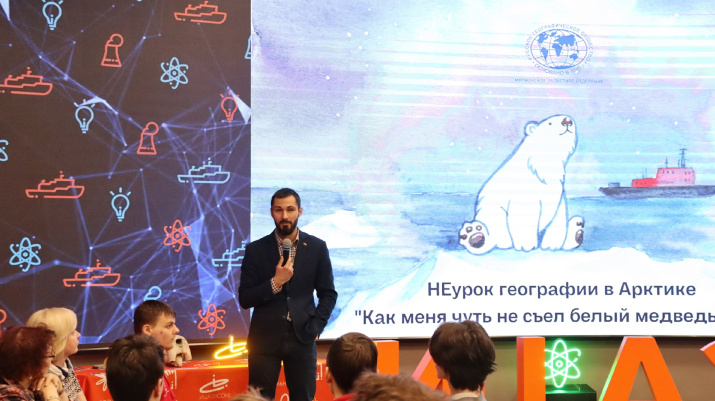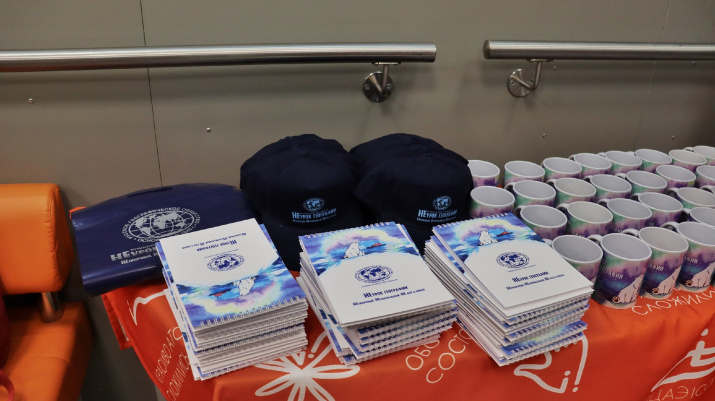The All-Russian educational campaign of the Russian Geographical Society "Not-a-Geography Lesson" has begun in 65 regions of Russia. On April 21 at 14:00 at the Atomic Energy Information Center on board the nuclear icebreaker Lenin, as part of this campaign, a geography lecture The Time I Almost Got Eaten by a Polar Bear took place It was organized by the MRB RGS.
The guests of the Lesson gathered at the Murmansk Atomic Energy Information Center. Schoolchildren and students of educational institutions of the region, representatives of scientific and public organizations, members of the Russian Geographical Society took part in the event.
As part of the event, the Murmansk Regional Branch of the Russian Geographical Society presented an exhibition with unique artifacts discovered during the expeditions. Among them were the skulls of a polar bear and a walrus, a whale vertebra, a wooden sole of a participant of one of the polar expeditions of the past years.
The representatives of the Branch shared their experience in organizing complex expeditions, spoke in simple language about complex scientific research, as well as about numerous encounter with polar bears — sometimes the participants of the expeditions had to sit on the roofs of buildings for hours to avoid being eaten by the master of the Arctic.
A member of the Council of the Murmansk Regional Branch of the Russian Geographical Society, the legendary Arctic captain Rostislav Gaidovsky shared his experience of participating in polar expeditions. Among them were a sailing expedition to the Svalbard archipelago and an expedition to Franz Josef Land in 1985. This is when an important discovery was made — the strait separating the islands of East Northbrook and West Northbrook was discovered.
Denis Moiseev, Chairman of the Murmansk Regional Branch of the Russian Geographical Society, Deputy Director for Science of the Murmansk Marine Biological Institute of the Russian Academy of Sciences, told about the expeditions he took part in. These include expeditions to Franz Josef Land in 2007-2009, to Svalbard in 2015-2019 and to Novaya Zemlya in 2022. The guests of the event learned about the dangers and difficulties that the Arctic holds, as well as about the peculiarities of conducting scientific research in the polar regions. In conclusion, Denis Moiseev shared his plans for the next expedition season.
— This year marks the 150th anniversary of the discovery of the Arctic archipelago of Franz Josef Land. It is celebrated on August 30. I hope that we will organize an anniversary expedition dedicated to this date," Moiseev said.
Sergey Goncharov, a member of the Council of the Murmansk Regional Branch of the Russian Geographical Society, told the participants of the event about the activities of the Branch as well as about his expedition experience — he took part in an expedition to the North Pole on a nuclear icebreaker, as well as in an expedition to Novaya Zemlya in 2022.
— We will hold new events and tell people about all the interesting things that happen in our work not only outside our region, but also on the Kola Peninsula. We, in our small homeland, also have a lot of interesting things," Goncharov stressed.
Anastasia Yagodina, Project Manager of the Murmansk Regional Branch of the Russian Geographical Society, conducted a Geographical Quiz for the participants of the event allowing everyone to show off their knowledge of geography and local history.
All participants of the Lesson received memorable gifts — unique souvenirs with the symbols of the Russian Geographical Society, created on the basis of a watercolor work by a Murmansk artist, a member of the Russian Geographical Society Ekaterina Goncharova.
The Murmansk Regional Branch of the Russian Geographical Society expresses its gratitude to the Murmansk Atomic Energy Information Center for the opportunity to hold the event and comprehensive assistance in its organization. In addition, we express our gratitude to Natalia Tornquist's charitable foundation Rebirth of Nature, a sponsor of the project.

